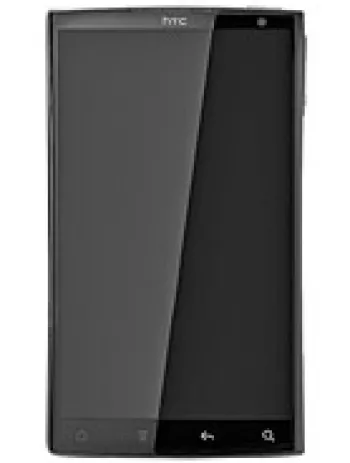
Introduction to HTC One XC
The HTC One XC was a smartphone developed and launched by HTC in mid-2012. Though it has been discontinued for several years now, it remains a point of reference for mobile technology enthusiasts due to its blend of features and design. This device came about during a pivotal era for HTC, positioning itself as a competitor against other major players in the smartphone industry at that time.
Design and Build
The HTC One XC boasts sleek and modern dimensions, with measurements of 134.8 x 69 x 9.5 mm and a weight of 138.5 grams. This made it comfortable to hold and use, a critical aspect when smartphones were becoming larger and heavier. The use of quality materials contributed to a premium feel despite its relatively affordable price.
Another notable feature is the Mini-SIM integration, adhering to norms prevalent during its release. Its external design was characterized by robustness and elegance, with a solid build that appealed to many users who preferred sturdy devices.
Display
The 4.7-inch IPS LCD was a highlight of the HTC One XC, offering vibrant colors with a resolution of 720 x 1280 pixels and a density of approximately 312 ppi. This ensured a crisp and clear viewing experience which was competitive during the phone’s time of release. The screen-to-body ratio of approximately 65.5% offered a good balance of display and handling.
Performance
Running on Android 4.0 (Ice Cream Sandwich) with the customized Sense UI, the HTC One XC presented a user-friendly and smooth interface. It was powered by a dual-core 1.5 GHz CPU which provided adequate performance for everyday use. While it might not have been the most powerful device, it was competent enough for handling basic multitasking and standard application use.
Camera Capabilities
The HTC One XC featured an 8 MP rear camera with autofocus and LED flash, allowing users to capture decent quality photographs. It also supported video recording at 1080p@24fps with stereo sound, an impressive feature for a phone of its time.
The front camera was a 1.3 MP sensor, supporting 720p video recording. While this might appear modest by today’s standards, it was quite sufficient for video calls and occasional selfies.
Storage and Memory
The device was equipped with 16GB of internal storage and 1GB of RAM. The lack of a card slot for expandable memory could be seen as a limitation, particularly for users requiring more space for media and apps.
However, the 1GB RAM was suitable for the range of applications available back then, providing a satisfactory user experience and supporting the device’s multitasking capabilities.
Battery Life
The removable Li-Ion 2000 mAh battery supported the HTC One XC’s operations, offering decent battery life. This battery capacity allowed users to go through a good portion of the day on standard usage before needing to recharge.
The option to replace the battery was a key feature, offering convenience for users who preferred carrying extra batteries or who wished to replace aging ones.
Network and Connectivity
This device supported GSM/CDMA and EVDO networks, making it versatile for different carrier requirements. With EV-DO Rev.A 3.1 Mbps technology, the HTC One XC provided reasonable network speed for the era.
Connectivity-wise, the phone included Wi-Fi 802.11 b/g/n, Bluetooth, GPS with A-GPS, FM radio, and microUSB 2.0. These features were comprehensive enough to meet the connectivity needs of most users.
Audio and Multimedia
The HTC One XC included a loudspeaker and a 3.5mm jack, ensuring that users could enjoy music and media without needing additional adapters or equipment. These features were crucial for multimedia consumption and provided an adequate listening experience.
Additional Features
The phone was equipped with sensors such as an accelerometer, gyro, proximity sensor, and compass, enhancing user experience through functionalities like screen rotation and location tracking.
Its black color was perhaps a safe choice, popular among users favoring a classic look.
Conclusion
Though the HTC One XC has been discontinued, its blend of features and performance for the price point reflected HTC’s commitment to providing capable devices to a wide user base. It stands as a hallmark of innovation and design, embodying the transition period in smartphone technology of the early 2010s. For enthusiasts and collectors, it remains a memorable device from HTC’s product line.
Key Features of HTC One XC
- Network Technology: GSM / CDMA / EVDO with EV-DO Rev.A 3.1 Mbps
- Body Dimensions: 134.8 x 69 x 9.5 mm, Weight: 138.5 g
- Display: 4.7 inches IPS LCD, Resolution: 720 x 1280 pixels, 16:9 ratio (~312 ppi density)
- Operating System: Android 4.0 (Ice Cream Sandwich) with Sense UI
- Processor: Dual-core 1.5 GHz
- Internal Memory: 16GB storage with 1GB RAM
- Main Camera: 8 MP with autofocus and LED flash, Video recording at 1080p@24fps with stereo sound recording
- Selfie Camera: 1.3 MP with 720p video recording
- Sound: Loudspeaker and 3.5mm headphone jack included
- Connectivity: Wi-Fi 802.11 b/g/n with hotspot, Bluetooth, GPS with A-GPS, FM radio, and microUSB 2.0 with MHL TV-out
- Sensors: Accelerometer, gyro, proximity, compass
- Battery: Removable Li-Ion 2000 mAh battery
- Available Color: Black
HTC One XC Key Disadvantages
- No support for 4G LTE networks.
- Outdated Android OS version (Android 4.0 Ice Cream Sandwich).
- No expandable storage due to the absence of a memory card slot.
- Low internal storage with only 16GB available.
- Limited RAM at 1GB, which may affect performance with modern applications.
- Front camera resolution is quite low at 1.3 MP.
- The display's screen-to-body ratio is relatively low at 65.5%.
- The device has been discontinued, so future support and updates are unlikely.
- The battery is relatively small at 2000 mAh, which might result in shorter battery life.


View Also
More Phones
All Rights Reserved +14266 Phones © Mobilawy 2025

























